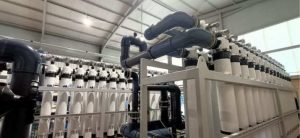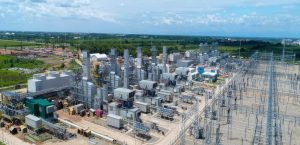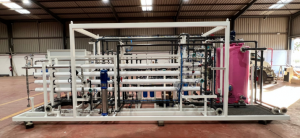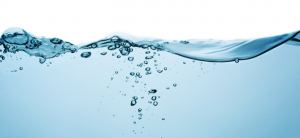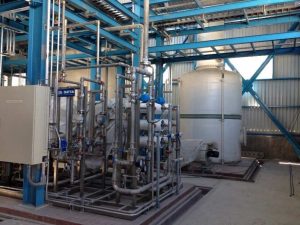
SETAᴾᴴᵀ is working with the Canary Islands Technological Institute on the construction of a reverse osmosis desalination plant as part of the DESAL project, aimed at developing and consolidating a joint R&D&I platform in Macaronesia (Canary Islands, Madeira, Cape Verde and Mauritania).
The reverse osmosis desalination plant will be installed in the town of Legweichich, in Mauritania. It’s a fishing village located 93 km south of Nouakchott, selected on the basis of its need for drinking water and a stable population. This plant operates through the reverse osmosis system and has a capacity of 80 m3/d.
Water is a scarce commodity, especially in countries like Mauritania. In many cities like Nouakchott, the country’s capital, there is no water sanitation system in the poorest neighborhoods.
This is why projects such as DESAL, together with the European Union, focus on investment and research in desalination in these countries, in an attempt to provide a solution to the problem of water scarcity.
Reverse osmosis desalination plants
The reverse osmosis desalination plant requested by the ITC, with a capacity of 80m3/d, will be built on a compact, self-transportable stainless steel frame and installed in a 20-foot container. It will have the following technical specifications:
- Physico-chemical pre-treatment of seawater:
– 5 µm microfilter.
– Dosage of antifouling product.
– Multilayer filter.
- High-pressure pumping system with energy recovery.
- Reverse osmosis system.
- Product water post-treatment.
- Cleaning and flushing system.
The reverse osmosis desalination plants manufactured by SETAᴾᴴᵀ offer many benefits. The water they produce is high quality water thanks to the progressive improvements in the performance of the reverse osmosis membranes, which have improved the water desalination process. Thanks to them and to research projects such as DESAL, many people have access to drinking water in places where it is needed.


